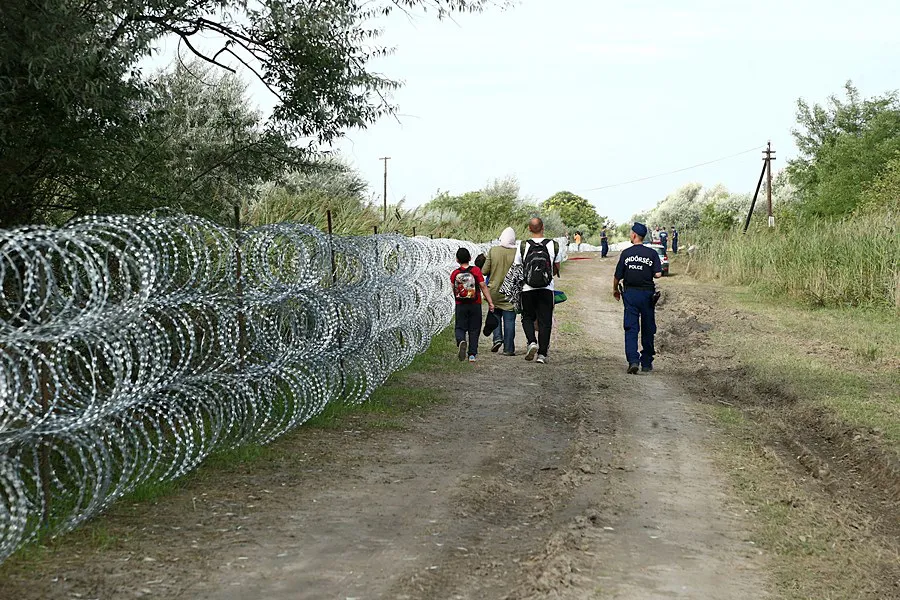Building Global Support for Ukraine: Borders and Migration

Disclaimer: Opinions expressed in this commentary are those of the author and do not necessarily represent the institutional position of International IDEA, its Board of Advisers or its Council of Member States.
The previous post in this series examined how overseas development assistance (ODA) to domestic refugee resettlement effectively displaced the cost onto those countries least equipped to bear it, and the consequences this has for European and American calls for global unity in supporting Ukraine. As this alone is insufficient to explain the reticence of the Global South to isolate Russia, understanding the conflict requires a deeper dive into where European policy has used development aid for less than democratic ends.
Putting aside far-right figures who object to any and all state funds leaving national borders, development aid has been criticized by actors on both the left and the right as an anti-democratic and neo-colonial institution that undermines national sovereignty and fosters economic dependency. These critiques usually focus on the broad spectrum of development aid, and although separating out what is and is not “democracy and governance” aid and measuring its efficacy is methodologically tricky, metanalyses show that it does, in fact, contribute to democratization and to a lesser degree, protects against democratic backsliding.
A key part of the efficacy of ODA targeted to strengthening good governance and protecting democracy is not just the impact of the programs, NGOs, and technical support programs funded, but the leverage that donor states and institutions are able to use to extract concessions in return for providing ODA. In other words, coercion is effective, which raises the obvious problem of when coercion is used for less than democratic ends.
Since 2015, a key priority of EU donor governments has been to link development aid to recipient states’ willingness to accept rejected asylum seekers and prevent population flows towards the EU. Given the reordering of European domestic political coalitions that followed the 2015 migration crisis, it is not surprising to see the following new domestic political priorities reflected in foreign policy.
That said, the responses seem to prioritize short-term political fortunes over long-term planning. It is difficult to envision how pushing for increasingly militarized and policed borders around the world serves to promote democratic values or even regime stability, and development experts also find that developing ODA programs to prevent migration is at odds with core development goals like reducing poverty.
European successes in limiting migration flows have thus far required cooperation with authoritarians and turning a blind eye to their human rights abuses. Under the auspices of the €5 billion Emergency Trust Fund for Africa, which began with the otherwise laudable goal of identifying and addressing the root causes of migration, hundreds of projects have effectively enforced “an externalized border policy of the European Union”, pressured cash-starved African governments to harden their borders for no domestic benefit, and in some cases, damaged local economic networks to the extent that net irregular migration increased.
These policies engender hostility in the Global South and undermine the call for the solidarity of democracies against growing autocratization. As both China and Russia are adept at playing past communist ties and anti-western rhetoric to their advantage in Africa, there is no easy shortcut to building democratic support for European policy goals on the continent – development aid should prioritize expanding and protecting democracy, even if it means delaying the achievement of other policy goals. More broadly, European policymakers should be conscious of history, and recognize that behaviour that rouses memories of colonialism can only undermine their ability to achieve their policy goals on the continent.
This blog is the second in a three-part series.




